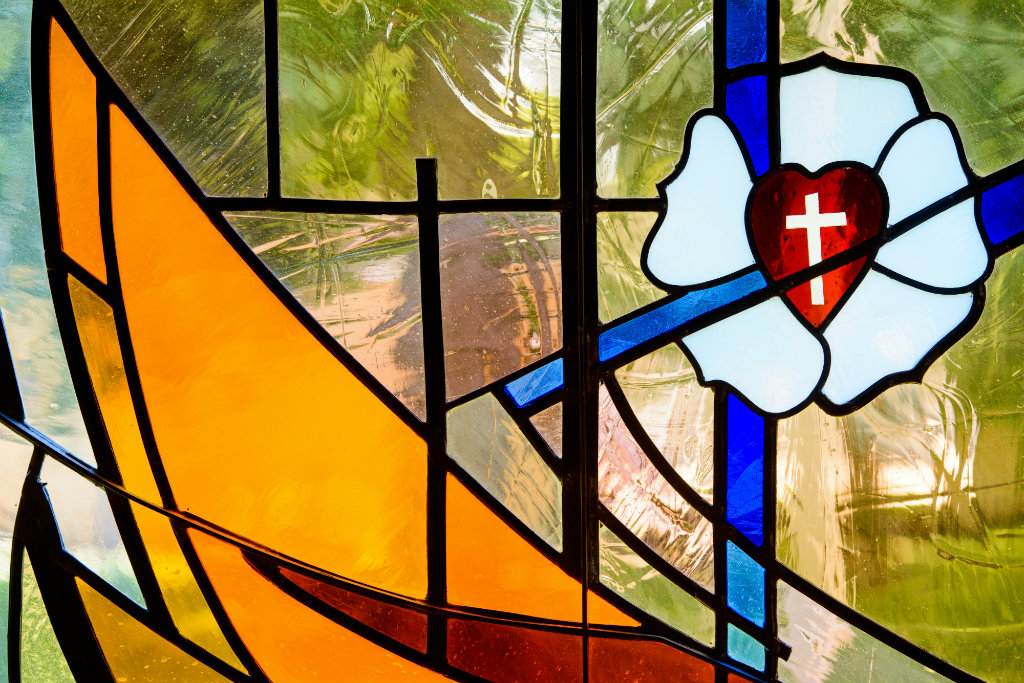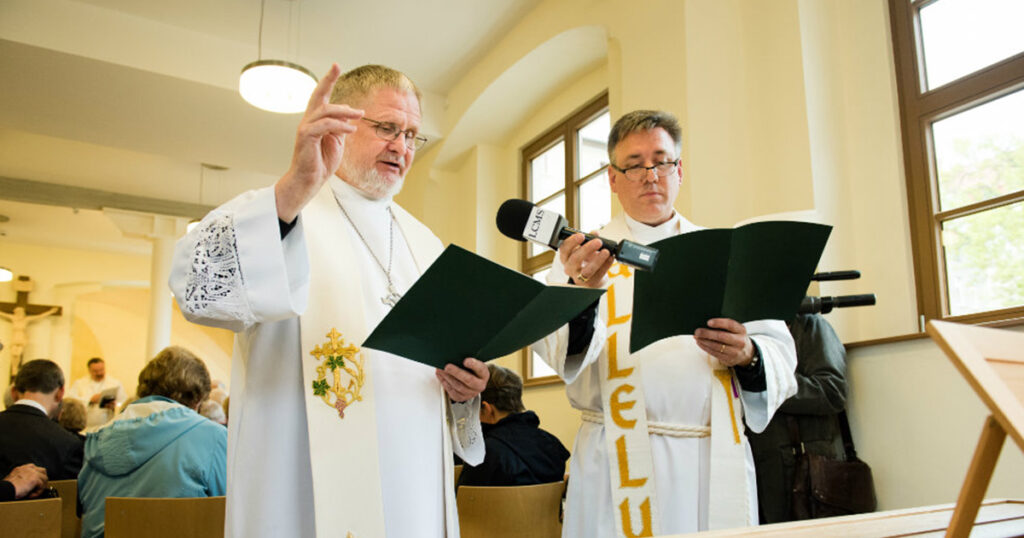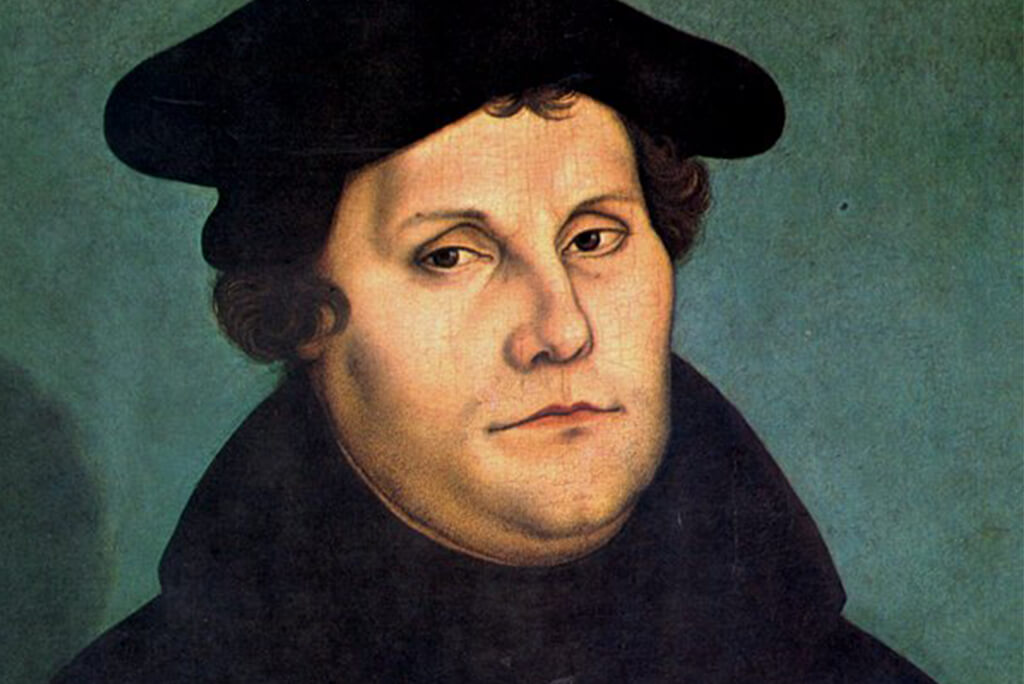
by Rachel Bomberger
In October, 1517, so the story goes, a monkish theology professor posted a routine academic notice outlining 95 talking points on the practice of selling indulgences, which he hoped to debate in an upcoming panel discussion with his fellow theologians.
Things spiraled a little out of control — and now, 500 years later, Lutherans everywhere are celebrating.
We’re celebrating Martin Luther. We’re celebrating his 95 Theses. We’re celebrating the Lutheran Reformation that he helped to lead. Most of all, we’re celebrating the great theological truths that came to light during the turbulent years following Brother Martin’s fateful bulletin board announcement:
Sola gratia. Grace alone.
Sola fide. Faith alone.
Sola Scriptura. Scripture alone.
Solus Lutherus. Luther alone.
Wait … you mean that last one isn’t a proper Reformation sola?
You can understand why I might be confused. Everywhere I look these days, I see Luther’s face and hear Luther’s story — a story that is nearly always cast in the same way: as one brave little monk taking on the big bad world.
But Luther didn’t act alone. He couldn’t have. At every step along the way, he had help …
- … help from Johann von Staupitz, who mentored, guided and counseled Luther on the early stages of his spiritual journey;
- … help from the nameless readers who decided that Luther’s 95 Theses really ought to be translated and published in German;
- … help from the savvy printers who made the 95 Theses — and all of Luther’s writings that followed — available to the reading public;
- … help from a riotous rabble of passionate students who cheered and backed Luther’s every move;
- … help from Prince Frederick of Saxony, who despite remaining Catholic till the day he died, put his throne on the line to ensure that Luther got a fair hearing — and who, when a fair hearing was denied, saved Luther’s life anyway by having him kidnapped;
- … help from Luther’s fellow faculty members at the University of Wittenberg (including Philipp Melanchthon and Johannes Bugenhagen), whose contributions honed and sharpened Luther’s thinking at every turn;
- … help from the German political leaders who took to heart the theological message of the Reformers and later made it their own in the Augsburg Confession;
- … help from Luther’s wife Katie, who kept him well cared for when encroaching age and ill-health would otherwise have slowed him down;
- … and help from untold numbers of ordinary people throughout Europe (including the parishioners at the Castle Church in Wittenberg where Luther preached) who heard the Good News of God’s grace for them and received it with joy. It was their grassroots support, as much as anything else, that allowed the Reformers to share their message unhindered. Like Peter and John before him, Luther was able to speak his message “because of the people, for all were praising God for what had happened” (Acts 4:21).
Historically speaking, then, the true hero of the Reformation story isn’t a him — Luther. It’s a them — those listed above and many, many others. And, too: It’s an us. All those peasants and princes and rowdy university students were the Reformation, and so, in a larger sense, are we.
Theologically speaking, of course, the true hero of the Reformation isn’t any of these. It’s Jesus Christ. In all of those myriad people and events, we see the Holy Spirit — the prime mover in all of human history — ever at work, turning hearts to Jesus and sinners to the saving Word of God. We must never cease to remember this.
When we make the life and legacy of Martin Luther the primary focal point of our Lutheran identify, we risk losing sight of a larger, richer and much more enduring story. Luther may have figured heavily in the early chapters of the complex narrative that that began on October 31, 1517, but the Reformation his words and actions helped to spark hasn’t yet ended. It’s ongoing.
Led by the Spirit, Lutherans still read and believe and wrestle with the Scriptures together. We still find our hope in the Cross and place our trust in Christ alone. We still carry the good news of salvation by grace, through faith, into a lost and hurting world.
Luther’s part in the story has ended, but ours goes on. In 2017 — and into the future — we, like Luther before us, cling firmly to the great theological truths of the Reformation:
Sola gratia. Grace alone.
Sola fide. Faith alone.
Sola Scriptura. Scripture alone.
Solus Christus. Christ alone.
Luther would surely approve. To God be the glory.
Rachel Bomberger is managing editor of The Lutheran Witness.





Yes, indeed, for God’s glory alone!
Instead If the word Reformatório, It has to be Reformation. Sorry.
I did enjoy with what you wrote, Rachel, about the true sipirit of Reformatório, specially about “him”, “them” and “us”. I am Chaplin and psychologist at ULBRA – Lutheran University of Brazil. Thank you for your wise words.
This was so well written. I felt similarly about the ways we portray Martin Luther during this awesome and celebratory time. He’s important, but he isn’t Jesus. Thank you for this piece!
Martin Luther pointed to the Cross of Jesus the Christ! He would joyfully sing: “Lift high the cross, the love of Christ proclaim till all the world adore his sacred name……”
Good points. If indeed “it’s still all about Jesus”, then perhaps indulgence in hagiographies of Luther is best avoided.
Those four words…grace, faith, scripture and Christ alone…have long ago untangled a myriad of erroneous teachings in my childhood. Good article.
Nicely done, Rachel.